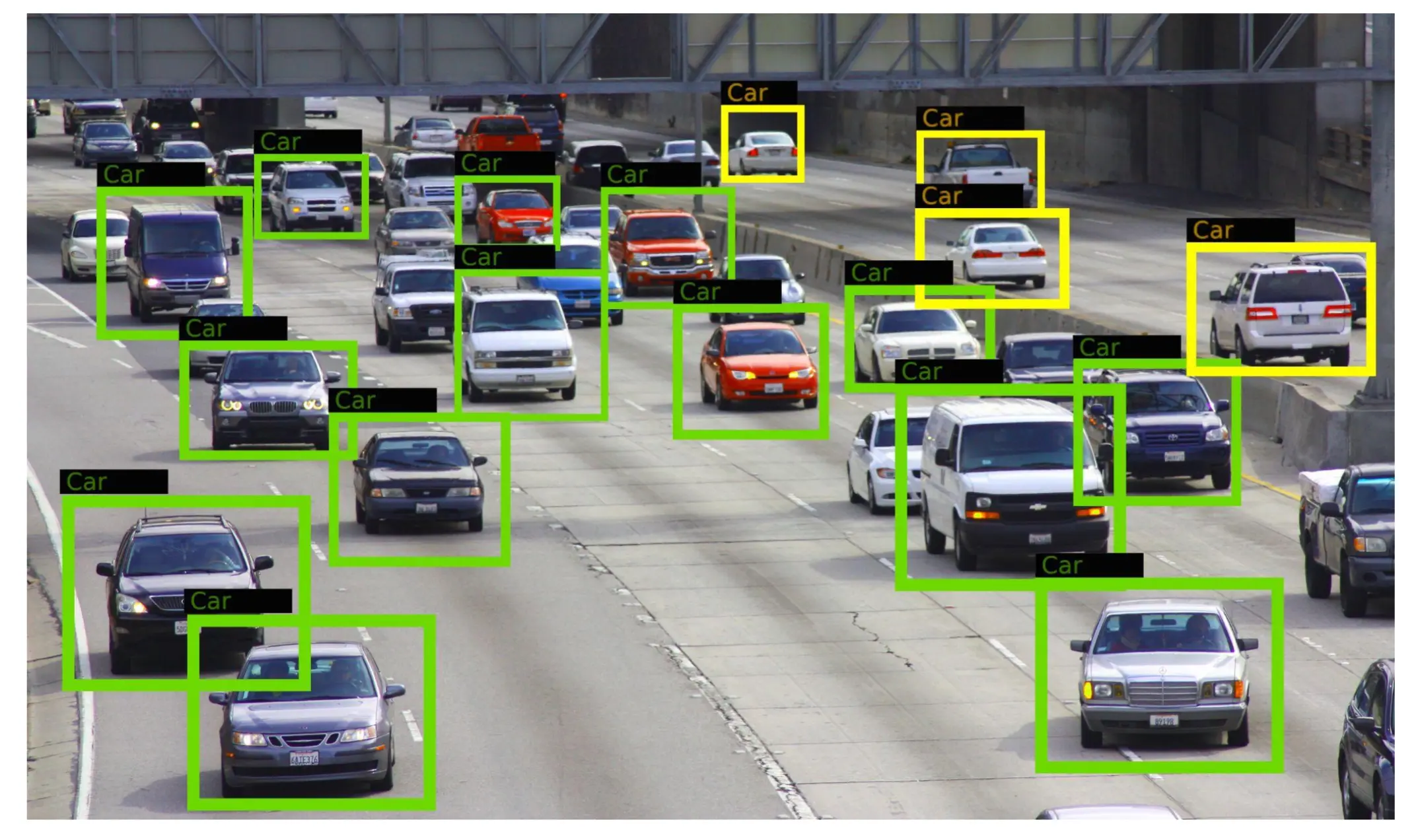- Publication: Thomson Reuters Institute
- Publication Date: Thomson Reuters Institute
- Organizations mentioned: OpenAI, Sternberg Reed, Morrison Cohen, McMillan, Holland & Hart
- Technical background required: Low
- Estimated read time (original text): 40 minutes
- Sentiment score: 72%, somewhat positive
The report by Thomson Reuters Institute explores the awareness, adoption, and potential risks of ChatGPT and Generative AI within law firms. It highlights lawyers’ views on applying AI in legal work, balancing innovation with risk.
TLDR
Goal: The report by Thomson Reuters Institute explores the incorporation and impact of ChatGPT and Generative AI in law firms. It aims to understand the current landscape of AI adoption in legal settings, focusing on awareness, usage, and potential risks. The context for this study is the rapid advancement of AI technologies like OpenAI’s ChatGPT and their growing relevance in various industries, including law.
Methodology:
- The report employs a combination of surveys and interviews with legal professionals.
- It analyzes current trends in AI adoption within legal settings and assesses the perceived risks and benefits.
- The report includes case studies and expert opinions to provide a comprehensive view of AI’s role in law.
Key Findings:
- Law firms are increasingly aware of and interested in generative AI technologies like ChatGPT for various applications.
- There is a significant focus on using AI for tasks like legal research, document review, and compliance, aiming to enhance efficiency and accuracy.
- Professionals express concerns over the ethical implications and potential risks associated with AI, emphasizing the need for a balanced approach.
- There is a notable divide in the adoption of AI between larger firms and smaller practices, with resource availability playing a key role.
- The report highlights a growing trend of integrating AI into client services and knowledge management.
Recommendations:
- Law firms should consider investing in AI technologies while being mindful of ethical considerations and potential risks.
- Continuous education and training in AI and its applications are necessary for legal professionals.
- The legal sector should adopt a collaborative approach between tech experts and legal professionals to navigate the complexities of AI in law.
- It is important to develop clear guidelines and standards for AI use in legal settings.
- Further research and discussion are needed to reveal the long-term implications of AI in the legal sector.
Thinking critically
Implications:
- Universal adoption of AI by law firms may significantly boost efficiency and accuracy in tasks like research, potentially saving costs for clients and speeding up case resolutions, thereby reshaping the economic landscape of the legal sector.
- Non-adoption of AI in legal practices might widen the gap between technologically advanced firms and traditional ones, possibly affecting the competitive landscape. This could also slow down the overall innovation in the legal sector.
- The ethical and oversight aspects of AI in law highlight the need for new regulations and ethical guidelines, potentially influencing political and social discussions around technology in professional settings.
Alternative Perspectives:
- Some may argue the survey’s focus on larger firms might not fully represent the challenges and perspectives of smaller practices, which could face different AI integration hurdles.
- The optimism about AI’s efficiency gains might overlook the complexity of legal work that requires nuanced human judgment, suggesting a potential overestimation of AI’s current capabilities.
- There could be concerns about the potential for AI to perpetuate existing biases in legal data, questioning the reliability of AI-generated legal advice or documents.
AI Predictions:
- AI will become a standard tool in legal research and document review within the next decade, driving a shift in the skill sets required for legal professionals.
- Ethical considerations and the need for human oversight in AI applications will lead to the emergence of new roles and departments within law firms, focusing on AI governance.
- The legal industry will see a growing number of AI-driven startups offering innovative solutions for legal tasks, potentially disrupting the traditional law firm business model.
Glossary
- Capabilities Frontier: The threshold of AI’s current capabilities in legal tasks.
- Hallucination: This refers to instances where an AI system generates false or misleading information, despite being logically or factually incorrect.
- Compliance: Adhering to laws and regulations within the legal framework.
- Knowledge Management: The process of creating, sharing, using, and managing knowledge and information within an organization.
- Document Review: Analyzing legal documents to determine their relevance or privilege in legal cases.



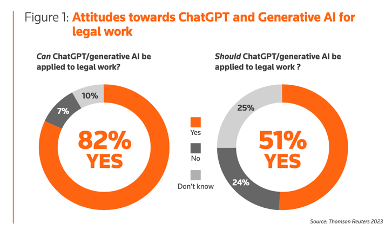
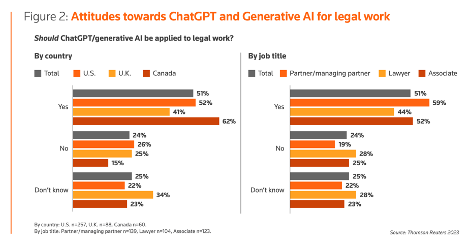
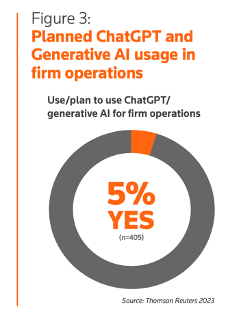
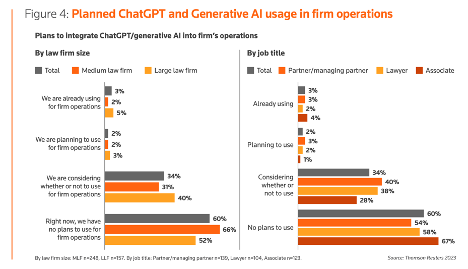
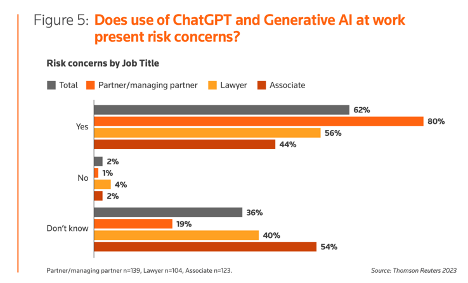
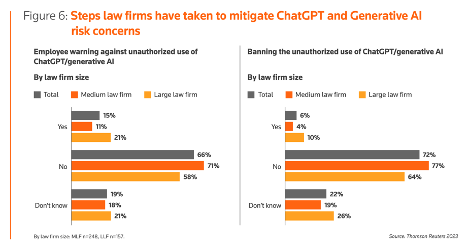
 Join hosts Anthony, Shane, and Francesca for essential insights on AI's impact on jobs, careers, and business. Stay ahead of the curve – listen now!
Join hosts Anthony, Shane, and Francesca for essential insights on AI's impact on jobs, careers, and business. Stay ahead of the curve – listen now!


